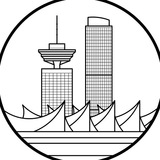Ванкуверская Беседка
-
производители и продавцы используют all-weather и all-season как хотят потому что нигде нет регламентированного определения
-
чудеса 🙂
-
В прошлом году приехали друзья со штатов. Ездили мы на Вистлер. Машину арендовали они chevy suburban на резине M +S. И когда ехали назад, было темно, поймали black ice на спуске. Недалеко от Сквомиша. Я там чуть не поседел! После этого не хочу туда ездить в плохую погоду на MS. Но зимняя резина бы не прям сильно помогла, но было бы лучше.
-
на kaltire надо все перепроверять у произовдителя, иногда то что они пишут как all weather на сайте произовдителя указывается как зимняя резина 🙂
-
я почитал что надо сделать резине чтобы получить снежинку, вообщем я не прав насчет характеристик, они делают acceleration test и по сути все. Надо смотреть и читать независимые тесты перед тем как выбрать резину 🙂
-
You might be wondering why tires marked M+S (‘mud’ and ‘snow’), also known as all-season tires, don’t have the severe service symbol. That’s because all-season tires are safe for most conditions, but they’re not designed to give grip on ice or in sub-zero weather.
In fact, all-season and summer tires become hard at temperatures below 7 C, leaving you with reduced traction and unsafe handling. The new symbol was created to distinguish winter tires from all-season tires.
Now, there are all-weather tires marked with the peaked mountain and snowflake. Nokian, which pioneered the all-weather tire concept with the introduction of the Nokian WR in 2008, has just released its third generation with the WR G3. These tires are considered winter tires designed for year-round use. info.kaltire.com/what-is-the-winter-tire-symbol/#:~:text=When%20you%20see%20a%20tire,slippery%20roads%20and%20low%20temperatures.

